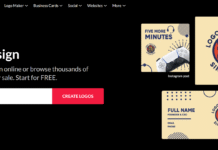The Foundation of Startup Culture
Every successful company begins with a story, and at the heart of that story is the culture that drives it forward. Startup culture is more than perks, slogans, or late-night brainstorming sessions. It is the collective mindset that defines how a team works, communicates, and grows together. In many cases, this culture forms before the first product is launched or the first round of funding is secured. For founders, acknowledging that startup culture is not an afterthought but a central part of strategy can be the difference between long-term sustainability and short-lived momentum.
Why Startup Culture Shapes Success
When people talk about startup culture, they often reduce it to a vague concept of energy and innovation. In reality, it is the invisible operating system of the organization. Culture sets expectations, influences behavior, and determines how a startup responds to challenges. A strong culture ensures employees know not just what they are working on, but why it matters. Startups with clearly defined cultural values often find it easier to attract talent, build investor confidence, and retain loyal customers. Conversely, companies that neglect this foundation usually face growing pains that are difficult to repair once habits are deeply entrenched.
Early Misconceptions About Startup Culture
One of the most common mistakes founders make is assuming that startup culture will form naturally without deliberate effort. In the rush to build a minimum viable product, sign clients, or impress investors, cultural conversations often take a back seat. Many founders believe they can revisit the topic later, once the company has traction. However, by that stage, behaviors, decision-making processes, and attitudes are already ingrained. Attempting to redefine them can feel forced or even destabilizing. The truth is that startup culture should be shaped from the very first day, even if it is as simple as identifying a handful of core values and revisiting them regularly.
How Culture Connects to Team Dynamics
The people behind a startup are its most valuable asset. No matter how innovative an idea may be, its execution depends on the team’s ability to collaborate and persevere under pressure. Startup culture plays a central role in guiding these dynamics. It influences how disagreements are resolved, how responsibilities are shared, and how achievements are celebrated. For example, a culture that prioritizes transparency encourages open communication, while one that emphasizes speed may push teams toward rapid experimentation. Both approaches can be valuable, but only if they align with the long-term vision of the startup. Without clarity, confusion and frustration can easily set in.
The Risks of Ignoring Culture Early On
Ignoring the role of startup culture often creates invisible cracks in a company’s foundation. At first, these cracks may not be noticeable as energy and excitement drive momentum. Over time, however, they begin to widen. Misaligned priorities, unclear communication, and inconsistent decision-making can erode trust. Employees may feel disconnected, turnover rates increase, and productivity suffers. In extreme cases, startups that neglect their cultural framework become vulnerable to public controversies or internal conflicts that damage their reputation. The lesson here is clear: culture is not just about feel-good values—it is a business necessity that protects both growth and reputation.
Balancing Speed With Cultural Integrity
Startups are often under immense pressure to grow quickly. Investors expect rapid progress, and competitors are constantly on the horizon. In this environment, it can be tempting to cut corners on cultural considerations. Yet, sacrificing culture for speed almost always backfires. A company that scales without a solid cultural foundation risks creating silos, inefficiencies, and burnout. Instead, the most successful startups integrate cultural practices into their growth strategy. This does not mean slowing down innovation, but rather ensuring that every decision—from hiring to product development—reflects the values the company wants to stand for.
The Role of Founders in Shaping Culture
Founders are the architects of startup culture. Their behavior, priorities, and communication style set the tone for the entire organization. If founders consistently emphasize collaboration, integrity, and accountability, these values naturally cascade through the team. On the other hand, if leaders ignore boundaries, tolerate toxic behavior, or prioritize short-term wins over long-term vision, the culture will reflect those choices as well. Recognizing this responsibility is essential for founders who want to build companies that last. Even simple actions, such as holding regular discussions about team values or creating rituals that reinforce purpose, can have a profound effect on how culture evolves.
Defining Culture Through Small Practices
Building a meaningful startup culture does not require elaborate strategies or expensive initiatives. Often, it begins with small, intentional practices. A team might start by identifying five words that describe the type of environment they want to work in. These words could represent principles such as creativity, resilience, or respect. Revisiting these terms monthly allows the team to assess whether they are still relevant or if adjustments are needed. Another simple yet effective practice is creating space for reflection. Weekly check-ins, feedback sessions, and transparent communication channels can help maintain alignment and prevent cultural drift as the company grows.
Why Startup Culture Matters to Investors and Customers
Investors and customers pay close attention to more than just a startup’s product or financials. They evaluate whether the company has the structure and values necessary to sustain growth. A healthy startup culture signals stability, resilience, and long-term potential. Investors are more likely to trust a team that demonstrates cohesion and clear communication. Similarly, customers often resonate with brands that reflect strong values, such as responsibility, innovation, or inclusivity. Culture becomes part of the brand identity, shaping how the company is perceived in the market. Startups that underestimate this dimension risk losing credibility even with a promising product.
Looking Ahead to Common Mistakes
As this guide unfolds, we will explore the most frequent mistakes founders make when building startup culture. From relying too heavily on personal networks for hiring to confusing perks with purpose, these missteps can undermine growth and create unnecessary challenges. Each mistake carries lessons that every startup can learn from, regardless of its industry or size. The goal is not only to identify pitfalls but also to provide practical strategies for avoiding them. By understanding these challenges early, founders and teams can cultivate a startup culture that supports innovation, strengthens resilience, and lays the groundwork for long-term success.
Mistake 1: Believing Startup Culture Just Happens
One of the earliest and most damaging mistakes many founders make is assuming that startup culture will naturally develop without any deliberate effort. In the fast-paced environment of launching a company, the focus often shifts almost entirely toward building the product, acquiring users, or securing funding. Culture feels abstract compared to immediate goals like shipping a minimum viable product. As a result, many founders tell themselves that culture can be dealt with later. Unfortunately, by the time they turn their attention to it, habits, behaviors, and attitudes are already established, making change far more difficult.
Why Startup Culture Cannot Be Left to Chance
Startup culture is not a byproduct of success, it is the framework that enables success. When it is left to chance, what forms is not a healthy and aligned culture but a mix of behaviors based on convenience and urgency. This unstructured environment can create silos, confusion, and frustration. Employees may adopt conflicting approaches to work, which causes inconsistency across the organization. Startups that neglect culture often find themselves with high turnover rates or internal conflict, which makes scaling nearly impossible. A company without a clearly shaped culture risks losing both talent and direction.
How Early Decisions Shape Long-Term Behavior
The earliest decisions a startup makes are more powerful than they seem. Something as simple as how feedback is delivered, how meetings are structured, or how deadlines are set becomes part of the DNA of the company. For example, if founders regularly tolerate missed deadlines or unclear communication, employees begin to view these practices as normal. Over time, these behaviors become deeply entrenched and nearly impossible to reverse. Just as a product prototype influences future iterations, cultural practices established in the early days become the foundation upon which the company is built.
Practical Steps to Actively Shape Culture
The good news is that shaping startup culture does not have to be overwhelming. Founders can start small and still make a meaningful impact. A simple but effective practice is to choose a handful of words that capture the desired culture. For instance, values such as transparency, accountability, or innovation can be written down and reviewed monthly. This keeps the conversation alive and ensures that the culture grows intentionally rather than randomly. Another helpful approach is to set aside short discussions during team meetings to ask whether actions align with the values. Even a few minutes of reflection each month can prevent cultural drift.
Mistake 2: Only Hiring Friends
In the earliest stages of a startup, trust is everything. Founders often feel more comfortable surrounding themselves with people they already know. Friends, family members, or close acquaintances seem like natural choices because they already share a bond of loyalty. Hiring friends can feel like the safest way to build a team that is committed to the vision and willing to work hard under uncertain conditions. While this approach may provide short-term comfort, it carries long-term risks that can severely undermine the strength of startup culture.
The Hidden Dangers of a Homogeneous Team
A team built primarily on personal relationships often lacks diversity of thought and experience. Friends may communicate more smoothly at first, but over time their similar backgrounds and perspectives can limit creativity. A startup thrives on fresh ideas and constructive disagreements. Without those differences, decision-making may become an echo chamber where no one challenges assumptions. In addition, relying on friends blurs professional boundaries, making it harder to give critical feedback or hold each other accountable. What feels like unity in the short run can evolve into complacency and blind spots that harm growth.
Real-World Consequences of Favoritism
History shows that startups relying too heavily on friends can run into significant problems. In some cases, appointing friends or relatives to important roles has led to legal conflicts or accusations of favoritism. For instance, a startup that placed a founder’s sibling in a senior legal role later faced a lawsuit that questioned the company’s judgment. Beyond legal risks, favoritism damages morale among employees who were hired from outside networks. When staff perceive that promotions or opportunities are tied to relationships rather than merit, trust erodes. This not only weakens startup culture but can also make it difficult to attract top talent.
Building a Hiring Process That Supports Culture
The solution is not to avoid hiring friends altogether but to establish clear rules and systems that prevent cultural harm. Founders should create transparent hiring processes with objective criteria for evaluating candidates. These criteria might include skills, experience, adaptability, and alignment with company values. It is also important to plan for worst-case scenarios early on. What happens if a friend underperforms or a conflict arises? By establishing policies from the beginning, founders avoid uncomfortable situations that could strain both professional and personal relationships. Over time, a structured hiring approach ensures that every new team member strengthens startup culture rather than undermining it.
Mistake 3: Equating Hiring Lots of People With Success
In the competitive world of startups, growth is often measured by visible markers such as team size or office space. Many founders assume that expanding the workforce quickly is a sign of progress and legitimacy. They may even feel pressure to impress investors, peers, or the media with the number of employees they have onboard. However, this mindset can be deceptive. Hiring too many people too fast is not a true indicator of success. Instead, it often creates unnecessary challenges that weigh down the startup culture and financial stability of the company.
Why Bigger Does Not Always Mean Better
A larger team may give the impression of momentum, but in practice, rapid hiring can strain resources. Every new employee requires onboarding, management, and integration into the company’s way of working. When the team grows too quickly, founders may struggle to maintain alignment, and communication often becomes scattered. Processes that worked for a small team may break under the weight of sudden expansion. Instead of fostering productivity, the result is inefficiency and confusion. True success is measured by how effectively a startup achieves milestones, not by how many people it employs.
Lessons From Startups That Scaled Too Fast
Many startups have learned this lesson the hard way. In one well-known case, a tech company boasted about its rapid hiring spree to gain credibility in the industry. Within months, however, it realized that revenue and workload did not justify the growing payroll. The company was forced to lay off more than ten percent of its workforce, a decision that damaged morale and tarnished its reputation. These scenarios show how hiring without strategy can backfire. A bloated team does not guarantee success; it often exposes weaknesses in leadership and planning.
Smarter Metrics for Measuring Success
Instead of focusing on headcount, founders should track performance indicators that better reflect progress. Metrics such as customer acquisition cost, product adoption rate, revenue growth, or user satisfaction provide a more accurate picture of success. Celebrating these milestones helps build motivation without the risks that come with unchecked hiring. Small wins, when acknowledged and rewarded, reinforce a sense of accomplishment among team members. Protecting morale in this way is far more sustainable than equating culture with company size. Ultimately, a lean but highly effective team is stronger than a large, unfocused one.
Mistake 4: Competing With Perks Instead of Purpose
In many startup ecosystems, especially in hubs like Silicon Valley, companies compete fiercely for talent. One common tactic is offering flashy perks such as free meals, on-site yoga classes, or laundry services. While these benefits can attract attention, they do not build lasting commitment or loyalty. Founders often believe that by mimicking the perks of larger companies, they will gain a competitive edge. However, relying on perks instead of purpose leads to a fragile startup culture that struggles to endure challenges.
Why Perks Fail to Build True Commitment
Perks are temporary motivators. They may create excitement at first, but they do not address deeper needs like meaning, recognition, and growth. When funding slows down or budgets tighten, perks are usually the first things to disappear. Employees who joined mainly for these benefits may feel betrayed when they are removed. More importantly, perks do not define how a team collaborates or how a company achieves its mission. Without purpose, the workplace becomes transactional, and employees are less likely to go above and beyond when difficulties arise.
The Power of Purpose in Startup Culture
A strong startup culture is built on meaningful work and a clear mission. Employees who understand how their contributions impact the company and its customers are more engaged and motivated. For example, when a startup communicates how its product is solving a real-world problem or improving lives, team members feel that their efforts matter. Purpose also helps align decision-making across the company. It provides a compass during uncertain times, ensuring that everyone knows why they are working hard and what they are working toward. This sense of shared mission cannot be replaced by perks.
Practical Ways to Emphasize Purpose
Founders can strengthen startup culture by consistently highlighting the company’s mission and values. Sharing customer success stories, celebrating how the product is making a difference, and connecting daily tasks to long-term goals are simple yet powerful methods. Even if the product is not revolutionary, having a clear vision that employees believe in is enough to foster commitment. Startups should also invest in creating opportunities for personal and professional growth. When employees feel that they are learning and advancing while contributing to something meaningful, their motivation becomes self-sustaining. This is the kind of culture that outlasts perks and survives funding cycles.
Mistake 5: Glorifying Long Hours as a Cultural Norm
The image of startup teams working late into the night has become almost legendary. Many founders wear long hours as a badge of honor, believing that extreme dedication is necessary to achieve success. While it is true that launching a startup demands hard work and persistence, making long hours a cultural norm creates more harm than good. Burnout, mental health issues, and declining productivity are the inevitable results of glorifying unsustainable work habits.
The Illusion of Productivity Through Overwork
Working longer does not necessarily mean achieving more. In fact, research consistently shows that productivity drops significantly after a certain point. Employees who are constantly pushed to their limits make more mistakes, take longer to solve problems, and struggle with creativity. Startups that build their culture around overwork often confuse activity with progress. Instead of celebrating smart, efficient work, they reward those who spend the most time in the office. This creates a cycle where exhaustion is normalized, and true innovation is stifled.
Real Costs of Making Exhaustion Normal
Startups that glorify long hours often face hidden costs that surface later. Talent drain is one of the most damaging consequences. Skilled employees who feel exploited or burned out eventually leave, seeking healthier environments. High turnover disrupts progress and erodes morale among those who remain. Furthermore, reports indicate that nearly one-third of founders themselves experience depression, often a result of relentless stress. When the leaders of a startup are struggling, the entire culture suffers. A company built on exhaustion cannot sustain itself, no matter how strong the idea behind it may be.
Creating a Sustainable Work Culture
Instead of pushing teams to their limits, founders should prioritize balance and sustainability. This does not mean avoiding hard work altogether but setting clear boundaries that prevent burnout. Regular check-ins to assess workload, encouraging open discussions about stress, and modeling healthy behavior as leaders are essential practices. Small adjustments, such as avoiding unnecessary late-night emails or scheduling recovery periods after major deadlines, can make a big difference. Occasional long nights may be unavoidable, but they should remain exceptions rather than cultural expectations. A healthy startup culture is one where energy and creativity are preserved for the challenges that truly matter.
Mistake 6: Hiring Talent Without Considering Behavior
Startups often compete fiercely for skilled individuals who can deliver results quickly. In this environment, it is tempting for founders to focus only on technical expertise, experience, or proven achievements. While hiring highly talented people may seem like the safest bet, ignoring behavior and personality traits can be disastrous for startup culture. A single disruptive employee, no matter how skilled, has the potential to damage morale, create divisions, and undermine trust across the team.
Why Skills Alone Are Not Enough
Technical ability or domain expertise does not guarantee that someone will be a good cultural fit. Startups thrive on collaboration, adaptability, and shared purpose. If a new hire prioritizes personal gain over team goals, the damage often outweighs any individual contributions. For example, employees who withhold information to maintain control or who dismiss the ideas of others may slow down innovation rather than accelerate it. In small teams where every relationship matters, even one person with toxic behavior can have an outsized negative impact.
Warning Signs During the Hiring Process
Identifying problematic behavior is possible if the hiring process is designed to look beyond technical skills. Red flags often emerge during interviews. Candidates who speak negatively about previous employers, avoid taking responsibility for past mistakes, or show reluctance to collaborate may not align with a healthy startup culture. Another sign is self-centered language, where applicants emphasize personal achievements without acknowledging team contributions. These clues should not be ignored, even if the candidate’s skills seem impressive on paper.
Building a Balanced Approach to Hiring
The best hiring strategies combine evaluations of skill with assessments of character and cultural fit. Founders should design interviews that include behavioral questions, role-playing scenarios, or peer discussions that reveal how candidates approach teamwork, conflict, and accountability. Reference checks can also provide insight into patterns of behavior. While no hire will be perfect, prioritizing respect, adaptability, and integrity ensures that the team remains cohesive. A startup culture built on both competence and collaboration is far stronger than one built on talent alone.
Mistake 7: Treating Rule-Breaking as a Cultural Identity
Many startups pride themselves on being disruptors. They enter markets with bold claims, challenge traditional business models, and often celebrate their willingness to break the rules. At first glance, this rebellious spirit may seem like a strength. It creates attention, positions the company as innovative, and fuels a sense of daring among employees. However, when rule-breaking becomes a central feature of startup culture, it can lead to dangerous consequences that put the entire organization at risk.
The Thin Line Between Innovation and Recklessness
Challenging conventions is part of what makes startups successful, but ignoring legal, ethical, or industry standards is reckless. Some companies have ignored regulations in the name of growth and ended up facing lawsuits, regulatory crackdowns, or reputational collapse. What begins as a bold strategy can quickly spiral into a crisis that threatens the company’s survival. A startup culture that glorifies cutting corners teaches employees that success matters more than integrity, which damages trust both inside and outside the company.
Real-World Examples of Rule-Breaking Backfiring
Several high-profile startups that once celebrated their disruptive identity eventually paid a heavy price for ignoring rules. Whether it was failing to comply with labor laws, misleading investors, or violating customer trust, these companies became cautionary tales. The damage extended beyond financial losses; founders were forced to resign, and the brands became synonymous with unethical practices. These outcomes show that treating rule-breaking as a cultural strength may win short-term victories but destroys long-term sustainability.
Building a Culture of Responsible Innovation
The healthier approach is to balance innovation with responsibility. Founders should take time early on to define company values and clarify where boundaries lie. Questions such as “What actions require team discussion before moving forward?” or “Which standards will we never compromise?” help set the tone. Tracking these values regularly ensures accountability, especially under pressure. A startup culture built on responsible innovation encourages creativity without sacrificing ethics. This balance protects the company’s reputation, strengthens trust, and ensures that the drive to disrupt leads to lasting success rather than costly mistakes.
Mistake 8: Ignoring Team Design Principles
Startups often adopt lean practices when building products. They create prototypes, test them with users, learn from feedback, and then iterate. This approach accelerates innovation and minimizes wasted effort. Yet, many founders fail to apply the same principles to their teams. Ignoring team design undermines startup culture by leaving collaboration, communication, and engagement to chance. Just as products require testing and refinement, so too does the structure of the team that builds them.
Why Team Design Matters for Culture
Team design is about intentionally shaping how people work together. Without it, startups risk falling into patterns of ineffective meetings, unclear roles, and wasted energy. A poorly designed team may spend more time coordinating than creating. This inefficiency not only delays progress but also weakens morale. When employees feel their time is being misused, frustration grows, and commitment fades. A strong startup culture emerges when teams are designed to maximize trust, efficiency, and shared ownership of goals.
Practical Applications of Team Design
Applying team design does not require complex systems. Founders can start with small experiments that improve daily work. For example, declaring one day each week as a “no meeting day” gives employees uninterrupted time for deep thinking. Simplifying status meetings by focusing on a one-sentence update aligned with strategy can ensure clarity without draining energy. Retrospectives, borrowed from agile practices, allow teams to reflect on what worked and what did not. Over time, these small adjustments compound, creating a culture of continuous improvement.
Benefits of a Designed Team Culture
When startups apply design principles to their teams, the results are tangible. Engagement improves because employees feel their voices matter. Productivity rises as processes align more closely with actual goals. Trust grows when everyone sees that challenges are addressed collectively rather than ignored. Startups that embrace team design not only build better products but also foster a resilient startup culture. This resilience helps them weather setbacks, adapt quickly, and sustain momentum. By ignoring team design, founders risk leaving their most valuable asset the team without the structure needed to succeed.
Mistake 9: Failing to Define Culture Early
Many founders hesitate to formally define startup culture in the early stages. They believe it feels unnecessary, even “cheesy,” to write down values when the team is small. Some assume that culture will naturally emerge as the company grows, or that they can establish it later once the product and business model are more stable. This delay, however, is a mistake that allows informal habits and unspoken norms to solidify. By the time leadership tries to step in and set direction, it may already be too late to make meaningful changes.
How Undefined Culture Leads to Dilution
Without clear values or principles, a growing startup becomes vulnerable to cultural dilution. Each new hire brings their own expectations, work style, and priorities. Without guidance, these differences can create friction and misalignment. The team may lose its original energy and sense of purpose. Over time, the company begins to resemble a loose collection of individuals rather than a unified group. This lack of cohesion makes it difficult to make decisions, maintain accountability, or communicate a clear identity to customers and investors.
The Power of Simple Definitions
Defining culture early does not require a complex manual or lengthy presentations. In fact, the most effective approach is often the simplest. Founders can start by writing down five words that describe the environment they want to create. These words might include ideas like transparency, creativity, or accountability. Discussing these values with the team once a month ensures they remain relevant and guides adjustments as the company evolves. This lightweight process gives structure without slowing momentum, embedding startup culture as part of daily practice rather than an abstract statement.
Long-Term Advantages of Early Definition
When culture is defined early, it becomes a tool for decision-making and growth. It helps founders hire the right people, set consistent expectations, and maintain unity during periods of rapid change. It also provides a sense of stability for employees, who know what the company stands for and how their work contributes to that vision. Most importantly, it prevents the common trap of having to “fix culture later,” which is far more difficult once poor habits have taken root. Establishing startup culture early is not a distraction from building the business it is a foundation for building it well.
Mistake 10: Ignoring the Connection Between Culture and Leadership Behavior
Founders often underestimate how closely startup culture reflects their own actions. While mission statements and company values may be written on paper, it is the behavior of leaders that truly shapes daily practices. Employees observe how founders make decisions, respond to challenges, and treat others. If these behaviors contradict the stated values, the culture will follow the example set by leadership, not the words on a poster. Ignoring this connection creates a gap between intention and reality that damages trust and cohesion.
How Leadership Shapes Everyday Culture
In the early days of a startup, founders set the tone for almost everything. The way they handle stress, celebrate wins, or approach failure becomes a model for the entire team. For instance, a leader who emphasizes transparency by openly discussing setbacks encourages employees to be honest about challenges. On the other hand, a leader who hides information or reacts harshly to mistakes creates a culture of fear. Startup culture is essentially a mirror, reflecting the attitudes and habits of leadership back into the organization.
Consequences of Misaligned Leadership
When leadership behavior contradicts stated values, employees quickly notice. A company that claims to value collaboration but has leaders who make unilateral decisions will breed resentment. Similarly, a startup that promotes work-life balance while glorifying founders who never take breaks sends a mixed message. This disconnect erodes credibility, making cultural values seem hollow. Over time, employees stop taking the culture seriously, viewing it as corporate rhetoric rather than a guiding principle. Once that happens, rebuilding trust becomes extremely difficult.
Aligning Leadership With Cultural Goals
To build a strong startup culture, founders must consistently demonstrate the values they want to see in their teams. This requires self-awareness and accountability. Simple actions, such as admitting mistakes, recognizing contributions, or making time for team discussions, reinforce cultural priorities. Founders can also create systems of feedback that allow employees to hold leadership accountable. By aligning behavior with values, leaders create authenticity and consistency. This alignment ensures that culture is not just a set of ideals but a lived experience that guides how the company grows and adapts.
Mistake 11: Neglecting Communication Structures
In the excitement of launching a startup, communication often develops informally. Conversations happen on the fly, updates are shared in passing, and decisions are made in small groups without documentation. While this may work when the team is just a handful of people, it quickly breaks down as the company grows. Neglecting communication structures leaves startup culture vulnerable to confusion, misinformation, and frustration. Without a clear system, employees are left guessing about priorities, responsibilities, and progress.
Why Informal Communication Fails Over Time
Early-stage startups may see informal communication as a strength. The team is small, so everyone feels connected and updated. However, as more people join, the lack of structure creates gaps. Some employees receive critical information while others are left in the dark. This uneven flow of knowledge can cause duplicated work, delays, and even conflict. A startup culture built on guesswork cannot support long-term growth. Eventually, missed details or unclear directions lead to costly mistakes that could have been avoided with better systems.
Building Effective Communication Systems
The key to strong communication is clarity and consistency. Founders should establish regular check-ins, whether through weekly team meetings, progress updates, or digital dashboards that track goals. These structures ensure that everyone knows what the company is working toward and how their contributions fit in. Documentation is equally important. Recording key decisions, even briefly, prevents misunderstandings and allows new employees to get up to speed faster. By investing in clear communication channels, startups strengthen alignment and protect their culture from fragmentation.
How Communication Strengthens Startup Culture
When employees feel informed and included, they are more engaged and committed to the company’s mission. Effective communication reduces stress, builds trust, and ensures that everyone is working toward the same objectives. It also creates space for feedback, which allows the culture to evolve in healthy ways. Rather than leaving communication to chance, founders who establish strong systems demonstrate that they value transparency and collaboration. This approach not only improves performance but also reinforces startup culture as a unifying force in the organization.
Mistake 12: Overlooking Employee Wellbeing
In the race to achieve milestones, founders sometimes forget that the people behind the product are their most valuable resource. Startups often promote a culture of resilience and sacrifice, where employees are expected to put the company first at all times. While dedication is important, neglecting employee wellbeing leads to burnout, disengagement, and ultimately, higher turnover. A strong startup culture cannot thrive if the team feels drained or unsupported.
The Hidden Costs of Ignoring Wellbeing
When wellbeing is not prioritized, the effects may not show immediately. Employees may push through long hours and heavy workloads for months, but eventually the strain takes its toll. Productivity drops, creativity diminishes, and mistakes increase. In some cases, talented individuals leave entirely, seeking healthier environments. Replacing them is expensive and time-consuming, and the loss of institutional knowledge weakens the team. A startup culture that overlooks wellbeing may seem productive in the short term, but it erodes long-term sustainability.
Simple Practices That Protect Wellbeing
Prioritizing wellbeing does not require extravagant programs or expensive perks. Small, consistent practices often make the biggest difference. Encouraging regular breaks, setting reasonable expectations for availability, and respecting personal time are simple yet powerful signals. Regular one-on-one check-ins give employees space to discuss workload and challenges. Even celebrating small achievements helps prevent burnout by reminding the team that their efforts are valued. These actions demonstrate that the company sees employees as people, not just resources.
Building Wellbeing Into Startup Culture
Wellbeing should not be treated as an afterthought but as a core element of startup culture. Founders can model healthy behavior by managing their own workloads, taking time off when needed, and openly discussing the importance of balance. This sets a standard for the entire team. Creating a supportive environment where employees feel safe to speak up about stress fosters trust and loyalty. Over time, startups that integrate wellbeing into their culture build stronger, more resilient teams capable of navigating the inevitable ups and downs of growth.
Mistake 13: Ignoring Feedback Loops
Feedback is the engine that drives improvement, yet many founders underestimate its role in shaping startup culture. They may focus on customer feedback when refining a product but overlook the importance of internal feedback among team members. Without regular opportunities to share insights and concerns, employees feel unheard and disengaged. A startup culture that lacks feedback loops risks stagnation, misalignment, and recurring mistakes that could have been easily corrected.
Why Feedback Strengthens Culture
A healthy feedback system reinforces transparency and trust. When employees know their voices matter, they are more willing to contribute ideas and address issues early. This prevents small problems from growing into major setbacks. Feedback also helps align the team with company values. For example, if collaboration is a core principle, consistent feedback ensures that behaviors reflect this value. In this way, startup culture is not only stated but actively lived through continuous dialogue and adjustment.
Common Barriers to Effective Feedback
Many startups avoid feedback discussions because they fear conflict or believe it will slow down progress. In reality, avoiding feedback creates more conflict in the long run. Employees may stay silent about frustrations, only for resentment to grow over time. Another common barrier is lack of structure. Feedback given randomly or inconsistently loses its impact. Without a clear process, team members may not know when or how to share their thoughts, leaving valuable insights unused.
Creating Feedback Loops That Work
Founders can integrate feedback into startup culture by establishing regular check-ins, retrospectives, and open forums. These practices make feedback part of the routine rather than an occasional event. Clear guidelines such as focusing on behaviors instead of personalities help keep conversations constructive. Technology tools, like anonymous surveys, can also encourage honest input. Most importantly, leaders must act on the feedback they receive. When employees see that their suggestions lead to meaningful change, trust deepens and startup culture grows stronger.
Mistake 14: Confusing Culture With Perks and Symbols
When discussing startup culture, many founders point to visible elements such as branded hoodies, colorful office spaces, or free coffee stations. While these symbols may create an image of energy and innovation, they are not the foundation of culture. Real startup culture is built through behaviors, shared values, and daily practices, not decorations or perks. Confusing the two can lead to an empty identity that looks appealing on the surface but fails to inspire commitment or resilience when challenges arise.
Why Symbols Alone Cannot Sustain Culture
Symbols and perks can complement a healthy environment, but they cannot replace it. A company may design an impressive office with open spaces and creative artwork, yet if employees feel micromanaged or unsupported, the culture is weak. Similarly, perks such as free meals or gym memberships may provide short-term excitement but will not keep employees engaged when workloads become overwhelming. Culture is not what is displayed on the walls but how people treat each other, how decisions are made, and how the company responds to setbacks.
The Risk of Building Culture Around Appearances
Startups that rely too heavily on perks and symbols often find themselves facing disillusionment. Employees quickly realize that these surface-level benefits do not make up for poor leadership, lack of direction, or toxic behaviors. When reality does not match the image, trust erodes. Investors and customers may also notice the gap between branding and internal reality, which damages credibility. A startup culture built on appearances is fragile because it lacks the depth needed to guide real action.
Practical Ways to Align Culture With Reality
To avoid this mistake, founders should focus on embedding values into daily routines rather than relying on external symbols. For example, if collaboration is a stated value, it should be reflected in how projects are structured and how decisions are made. If transparency is a priority, leaders should model open communication and share both successes and failures honestly. Symbols and perks can still play a role, but they should reinforce genuine practices instead of covering up cultural gaps. When the visible elements align with lived experiences, startup culture becomes authentic and sustainable.
Case Study: The Perk-Driven Trap
Consider the case of a startup that invested heavily in flashy perks to compete with larger tech companies. Employees were given catered meals, game rooms, and even transportation services. For a while, the perks created buzz and attracted new hires. However, the company lacked clarity about its mission and values. Teams often worked in silos, communication was poor, and leadership avoided addressing conflicts. When funding tightened, many perks were cut, leaving employees frustrated. Without a foundation of trust and purpose, morale plummeted, and turnover rose. This example shows that perks cannot compensate for the absence of a strong startup culture.
Building Authenticity Through Shared Purpose
Instead of spending resources on perks that may not last, startups should invest in building purpose-driven practices. Employees are far more motivated when they understand how their work connects to a larger mission. This does not mean the mission has to be world-changing. Even small but meaningful goals can inspire loyalty if they are communicated clearly and lived out daily. A startup culture built on purpose is far more resilient than one built on symbols, because purpose survives market shifts, funding cycles, and external pressures.
The Role of Rituals in Strengthening Culture
One powerful way to embed values into startup culture is through rituals. Unlike perks, rituals are practices tied directly to values and repeated consistently. For example, a weekly reflection session where the team shares lessons learned reinforces transparency. Celebrating milestones, no matter how small, strengthens a culture of appreciation. These rituals are inexpensive, but they send powerful signals about what the company stands for. They are more meaningful than perks because they come from within the team’s shared identity rather than from external rewards.
How to Evaluate if Symbols Reflect Real Culture
Founders can assess whether their startup culture is authentic by asking simple questions: Do the perks and symbols reflect how people actually work? Are employees motivated by values or by surface-level benefits? Would the culture survive if all perks disappeared tomorrow? Honest answers to these questions can reveal whether the company is building a sustainable culture or hiding behind appearances. By ensuring alignment between what is said, what is seen, and what is experienced, startups create a culture that is both credible and inspiring.
Long-Term Advantages of Authentic Culture
A culture built on authenticity rather than symbols has long-term advantages. Employees remain loyal because they feel connected to the mission, not just the perks. Investors and partners are more confident in a company that demonstrates consistency between its values and its actions. Customers are more likely to trust a brand that embodies integrity. Most importantly, a strong startup culture provides stability in uncertain times. While perks and symbols may come and go, a culture grounded in shared purpose and authentic practices will continue to guide the company through growth and change.
Mistake 15: Treating Culture as a One-Time Task
Many founders approach startup culture as if it were a checklist item. They write down a mission statement, select a few inspiring values, and assume the work is complete. In reality, culture is not a static declaration but an ongoing process that requires constant attention. Treating it as a one-time task is a serious mistake because it ignores the way culture naturally evolves as the company grows, faces challenges, and brings in new people. Without deliberate reinforcement, the culture a startup establishes in its early days can quickly fade or shift in unintended directions.
Why Culture Requires Continuous Effort
Unlike policies or procedures, startup culture cannot be documented once and left alone. It is shaped daily by decisions, conversations, and actions. Each new hire adds to it, and each leadership decision influences it. For example, if transparency is a core value but leaders stop communicating openly under pressure, the culture begins to drift. Over time, these small deviations compound until the company no longer resembles its original vision. By failing to maintain and adapt culture, startups allow outside forces to define it, often in ways that weaken trust and performance.
How Neglect Undermines Growth
When culture is not actively maintained, it creates confusion among employees. New hires may not know what the company stands for, leading to inconsistent behavior across teams. As the organization scales, these inconsistencies become larger, making it harder to align on strategy or goals. Employees may feel disconnected, unsure whether leadership’s words match the company’s actions. This erosion of trust results in higher turnover, reduced morale, and missed opportunities for innovation. Neglecting culture not only affects internal operations but also damages the company’s external reputation.
Practical Strategies to Keep Culture Alive
The key to avoiding this mistake is to treat culture as a living system that evolves with the company. Regular check-ins, such as quarterly culture reviews, help ensure that stated values remain relevant and that daily practices align with them. Leaders should ask questions like: Are we living up to our values? Do our rituals and systems support our mission? What needs to change as the company grows? Embedding culture into hiring, performance evaluations, and decision-making keeps it front and center. By consistently reinforcing culture, startups make it a natural part of operations rather than a forgotten document.
Culture as a Competitive Advantage
Startups that continuously cultivate their culture enjoy a powerful advantage. Employees feel supported and inspired because they see consistency between values and actions. This creates loyalty and resilience, reducing turnover even during tough times. Investors also view strong culture as a signal of stability and leadership maturity. Customers, too, respond positively when they experience a brand that reflects integrity and purpose. By treating startup culture as an ongoing priority, founders build organizations that can adapt to change while staying true to their identity.
Making Culture a Daily Practice
Founders can embed culture into daily life through simple but consistent actions. For example, holding a short values check at the end of team meetings reminds everyone why they are doing the work. Encouraging peer recognition based on cultural values reinforces positive behavior. Leaders can also share stories that highlight moments when the culture was lived out in practice. These small steps ensure that culture is not just remembered but actively experienced every day. Unlike one-time declarations, ongoing practices make startup culture tangible and lasting.
The Risk of Waiting Too Long
Some founders recognize cultural drift only when problems become unavoidable. By then, negative patterns such as poor communication, low morale, or toxic behaviors may already be entrenched. Trying to correct culture at that stage requires significant effort, often involving restructuring or replacing team members. It is far easier to maintain culture consistently than to rebuild it after it has deteriorated. Startups that ignore culture until it becomes a crisis often find themselves spending more time repairing damage than driving growth.
Culture as a Long-Term Investment
Ultimately, culture is not a box to check but an investment in the company’s future. Just as founders continually refine their product, business model, and customer experience, they must also refine their culture. This investment pays dividends in the form of stronger teamwork, greater innovation, and lasting resilience. A startup culture that evolves intentionally grows with the company rather than against it. By treating culture as an ongoing priority, founders create a foundation that not only supports success but also ensures the company remains a place where people want to work, grow, and stay for the long haul.
Frequently Asked Questions About Startup Culture
Why is startup culture important for early-stage companies?
Startup culture is the backbone of every young company. It defines how people collaborate, make decisions, and respond to challenges. For early-stage startups, where resources are limited and uncertainty is high, culture acts as a guiding compass. A strong startup culture keeps the team aligned on priorities and creates a sense of shared purpose that motivates people to push through difficult times. Without a defined culture, a startup risks miscommunication, lack of accountability, and fragmented teamwork, all of which can slow progress and make scaling difficult.
How can founders establish startup culture from day one?
Building startup culture does not require complex frameworks in the beginning. Founders can start by identifying a few key values that capture the essence of how they want their team to work. These values should be simple, actionable, and revisited often. Practices like regular check-ins, open discussions about workload, and recognition of cultural wins are effective early tools. Even something as small as defining five guiding words and discussing them monthly helps shape a culture intentionally. The key is consistency, ensuring that actions align with the values, not just words.
What are the biggest mistakes founders make when building culture?
Some of the most common mistakes include assuming culture develops naturally, hiring only friends, equating team size with success, and overemphasizing perks instead of purpose. Others include glorifying long hours, ignoring employee wellbeing, and treating culture as a one-time task. These mistakes weaken startup culture because they prioritize appearances or short-term gains over sustainability. The good news is that all of these pitfalls can be avoided if founders commit to treating culture as a core strategic priority rather than a secondary concern.
How can a startup balance speed and culture?
Startups often feel intense pressure to grow quickly, which can tempt founders to sideline culture. However, speed without alignment leads to burnout and inefficiency. The solution is to integrate cultural practices into growth strategies. For example, as the team expands, founders can establish communication systems and clear feedback loops to maintain cohesion. Setting boundaries around work hours prevents burnout while still allowing for bursts of intense effort when necessary. By embedding culture into decision-making, startups can grow at a sustainable pace without sacrificing their values.
What role do perks play in startup culture?
Perks like free meals, game rooms, or flexible schedules can support morale, but they are not a substitute for real culture. If the core environment lacks trust, purpose, and respect, no amount of perks will keep employees engaged. Startups should view perks as supplementary, not foundational. The strongest motivator is meaningful work tied to a clear mission. When employees understand how their contributions impact the company’s success, they are more likely to stay motivated even if perks are limited or removed due to financial constraints.
How do investors and customers evaluate startup culture?
Investors often look beyond financial performance to assess whether a startup has the cultural foundation to sustain growth. A company with a cohesive team and clear values is less risky because it is more adaptable and resilient. Customers also respond positively to authentic cultures. They are more likely to trust and support brands that demonstrate integrity, transparency, and responsibility. Startup culture is not just an internal matter—it becomes part of the company’s public identity, influencing how the business is perceived in the market.
Can startup culture change as the company grows?
Yes, and it should. Culture is not static; it evolves as new challenges arise, new people join, and the business environment shifts. However, the core values should remain consistent. For example, a startup that values innovation may adjust how it encourages experimentation as it scales but will not abandon innovation as a guiding principle. Founders must actively manage this evolution, reinforcing values through rituals, policies, and leadership behavior. By adapting intentionally, a startup ensures its culture remains relevant while staying true to its identity.
Conclusion
Startup culture is not simply about energy, perks, or symbolic gestures. It is the invisible infrastructure that guides how people work, collaborate, and make decisions. For founders, especially in the fast-moving startup landscape, understanding that culture is a living system rather than a one-time exercise is critical. Companies that build culture intentionally—by reinforcing values, fostering open communication, prioritizing wellbeing, and aligning leadership behavior—create organizations capable of sustaining growth even in volatile conditions.
The common mistakes explored in this article reveal how easily culture can be undermined: hiring only friends, mistaking headcount for success, glorifying overwork, or neglecting communication systems. Each misstep chips away at alignment and morale. But when addressed with foresight, startups can avoid these traps and instead build a culture of resilience, creativity, and purpose. A strong startup culture becomes the foundation for long-term success, enabling founders to inspire their teams and earn the trust of both investors and customers.
Why Startupik Matters in This Journey
Platforms like Startupik provide an essential layer of support for founders navigating the complexities of growth and sustainability. While the principles of startup culture give entrepreneurs the framework for success, Startupik offers the ecosystem of knowledge, mentorship, and community that makes those principles actionable. For Gen Z founders and ambitious entrepreneurs worldwide, Startupik bridges the gap between inspiration and execution.
Through case studies, international insights, and curated resources, Startupik empowers startups to adopt best practices in culture-building with confidence. It connects entrepreneurs with global peers, investors, and thought leaders, ensuring they are not isolated in their journey. Just as cultural values give a startup internal resilience, Startupik provides external guidance and networks that amplify that resilience. By combining internal culture with global knowledge platforms, founders can create startups that are innovative, inclusive, and sustainable.
In the coming years, entrepreneurship will increasingly be defined by collaboration across borders, industries, and generations. Founders who embrace both strong internal cultures and platforms like Startupik will be better positioned to scale, adapt, and lead with purpose. The future belongs to startups that not only innovate but also embody cultural integrity, drawing strength from both their internal values and global ecosystems of support.
How to Start a Business Plan: Step-by-Step Guide for Entrepreneurs
















































